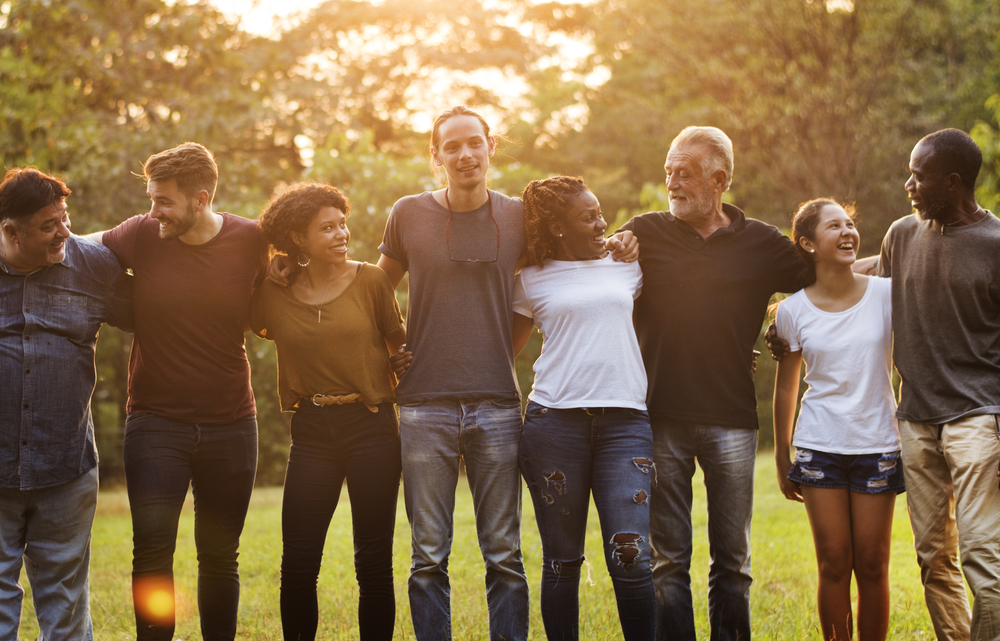There’s nothing that can lift you up like being the recipient of a random act of kindness. At least that’s how I felt recently when I discovered someone had paid for my coffee in the line at Starbucks. What began as a ho-hum morning was suddenly elevated to a day where the world was good and everything felt possible. Perhaps the only thing better is the feeling you get from paying it forward.
The story goes that in or around 1982 American author and journalist Anne Herbert, while sitting in a restaurant in California, scrawled the words Practice random kindness and senseless acts of beauty on her placemat. In the early nineties, the Random Acts of Kindness Foundation was born, a 5013c organization that encourages people to perform spontaneous caring deeds for others. Pay for someone’s toll, bake someone a cake, and leave a surprise for your postal carrier are just a few examples. All delightful ways to put more good into the world.
Good deeds, however, are not enough. It’s time to expand our idea of what it means to be kind.
Take a look at your social media feed. While you’ll see many of these feel-good stories pop up, you’re probably also seeing how human beings have taken a turn to the dark side. Anger, fear, vitriol, and shaming. The only anecdote to which is the hard work of loving-kindness and it’s about more than random acts.
The first shift to make is from random to intentional. Deep breaths. It takes bravery to dive in and show up for others with empathy and compassion, especially when so many of us are feeling so much fear. However, getting intentional about using every interaction to practice kindness is the first step toward building our empathetic muscles.
The second shift is to stop limiting kindness to acts and “good deeds.” Let’s consider getting intentionally kind in the following ways:
Be Kind with Words: Think back on your life. I’ll bet you can think of a time or two when someone’s words lifted you up and other times where you felt torn down. Turns out sticks and stones can break our bones and names can hurt us too. Let’s make a pact to pause before we comment. Ask ourselves, “does name-calling really get my point across, or am I indulging my need to make someone feel bad so I can feel better about my own stance?” It is possible to express our opinions without shaming others and when disagreements are handled with respect, our thoughts are more likely to be received.
We can also spread intentional words of kindness by looking for opportunities to lift people up through sincere compliments and encouragement. You never know when something you might say to another human being will be the very thing that carries them through the day or helps them make positive changes to their life.
Be Kind by Giving Grace: Once author Marianne Williamson was asked what message she most wished to share with the world. To paraphrase, she replied I wish we could all just give each other a break. We are all human and we all make mistakes. It’s time to give each other a little grace. This is not to say that we should stand for injustice, or that egregious wrongs should be without consequences. However, kindness can mean that we let go of the million little ways we expect others to be perfect and realize that we’re all a work in progress.
Be Kind by Getting Curious: We all have a story about the world that was written as a result of our personal histories, influences, and experiences. We can guard that story with our life by standing in judgment of those who don’t share it, writing people off, and even seeking to limit or harm them. Or we can get curious. Learn more. Open our minds to other ways of thinking, feeling, and being. In the end, even if we disagree, we have learned from the perspectives of others.
Kindness in this way is less fun and harder than performing random acts. However, when we use every interaction as an opportunity to practice respect, and grace, and curiosity, we may just open a doorway to a genuinely kinder and more loving world.


